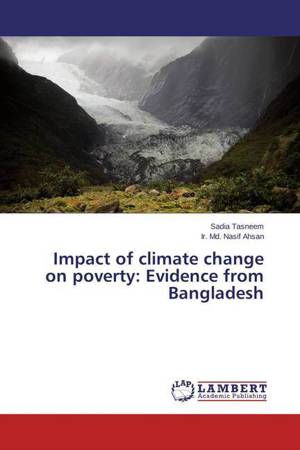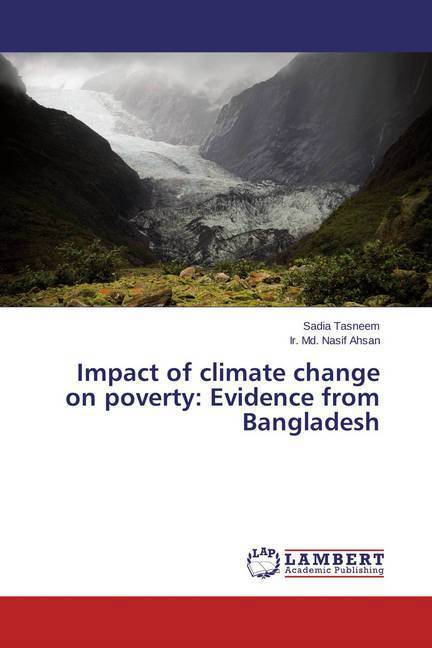
Bedankt voor het vertrouwen het afgelopen jaar! Om jou te bedanken bieden we GRATIS verzending (in België) aan op alles gedurende de hele maand januari.
- Afhalen na 1 uur in een winkel met voorraad
- In januari gratis thuislevering in België
- Ruim aanbod met 7 miljoen producten
Bedankt voor het vertrouwen het afgelopen jaar! Om jou te bedanken bieden we GRATIS verzending (in België) aan op alles gedurende de hele maand januari.
- Afhalen na 1 uur in een winkel met voorraad
- In januari gratis thuislevering in België
- Ruim aanbod met 7 miljoen producten
Zoeken
Impact of climate change on poverty: Evidence from Bangladesh
Evidence from Bangladesh
Sadia Tasneem, Ir. Md. Nasif Ahsan
Paperback | Engels
€ 66,45
+ 132 punten
Omschrijving
Bangladesh is one of the most vulnerable countries to climate change. The increasing risks from climate change, sea level rise, and natural and man-made hazards-such as cyclones, storm surge, flooding, land erosion, water logging, and salinity intrusion in soil and water have already adversely affected livelihoods of people living in environmentally fragile areas. Considering the possible effects of climate change in the coastal area this study deals with the land ownership pattern and per capita consumption (which is a proxy for poverty).One of the significant results from this study shows positive relation between consumption expenditure (measurement of poverty) and land ownership. Hence, land ownership becomes a crucial factor for capacity of the households while facing challenges of both poverty and vulnerability.So these empirical study-findings conclude that possible effects of climate change worsen poverty in coastal Bangladesh.
Specificaties
Betrokkenen
- Auteur(s):
- Uitgeverij:
Inhoud
- Aantal bladzijden:
- 124
- Taal:
- Engels
Eigenschappen
- Productcode (EAN):
- 9783659285479
- Verschijningsdatum:
- 21/07/2014
- Uitvoering:
- Paperback
- Afmetingen:
- 150 mm x 220 mm
- Gewicht:
- 191 g

Alleen bij Standaard Boekhandel
+ 132 punten op je klantenkaart van Standaard Boekhandel
Beoordelingen
We publiceren alleen reviews die voldoen aan de voorwaarden voor reviews. Bekijk onze voorwaarden voor reviews.









